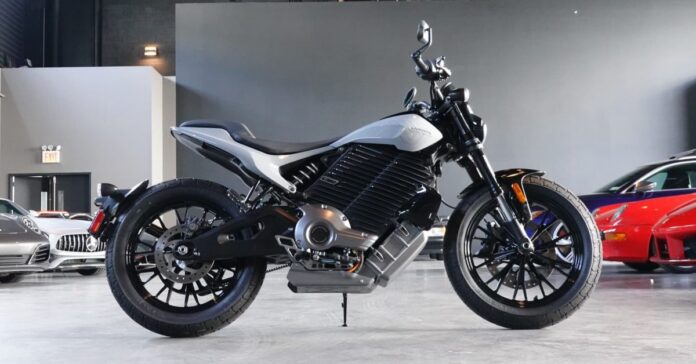When Harley-Davidson spun off its internal electric motorcycle division into a separate sub-brand known as LiveWire, I was initially a bit worried about what that would mean for future projects. But as soon as I saw the reveal of LiveWire’s next electric motorcycle, the S2 Del Mar, I knew my concerns were unfounded.
Here’s the story of how LiveWire got my money and why I’m excited to be a reservation holder for the upcoming S2 Del Mar electric motorcycle.
The bike isn’t quite here yet, as LiveWire says that the first deliveries of the S2 Del Mar will begin this summer. But that hasn’t stopped me from riding the bike, or at least a prototype.
I loved it when I tried it
Last September, I had the chance to test out a nearly complete prototype and experience the new Arrow architecture of the S2 Del Mar. Unlike the LiveWire One flagship motorcycle that stores its battery cradled inside its frame, the Arrow platform for LiveWire’s next few models uses the battery as a structural element. To grossly oversimplify it, the battery is the frame.
And yet, thanks to slick engineering, the bike still looks good, with a fairly traditional design despite the novel architecture.
Testing out the bike showed me that the S2 Del Mar inherited its big brother LiveWire One’s quick, nearly 3-second 0-60 mph acceleration, meaning you can beat just about anyone off the line, no matter what they ride or drive. And since the bike is electric, those launches are smooth and repeatable every time.
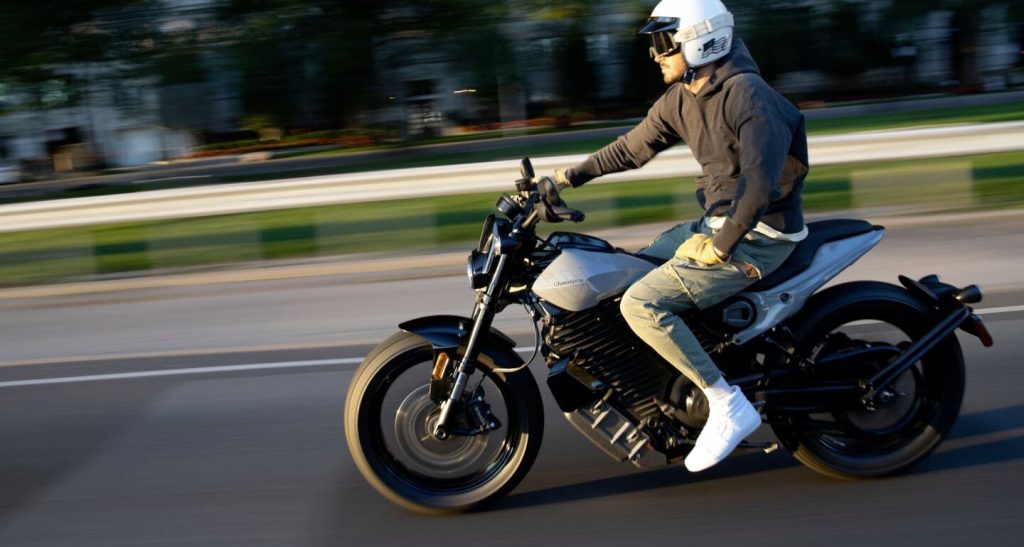
I don’t know what the top speed is, as that figure, along with the motor power and battery capacity, hasn’t been revealed yet. That said, my testing got the bike up to speeds that aren’t legal anywhere in the US, so I’m not terribly concerned with what the final speed turns out to be. It’s fun riding a Zero Motorcycle or Energica capable of 125 mph speeds, but the few times I may or may not have seen triple digits on those bikes also may or may not have made me worry about losing my license. Hypothetically speaking, of course.
Testing out the S2 Del Mar prototype showed me what a fun bike it is to ride in both the city and on the highway. This, of course, isn’t a touring bike, and I have no idea how it’d handle canyon carving since I did my testing in New York and New Jersey. But as a road bike, it’s a blast to ride.
I found it to be more comfortable than the LiveWire One and more my speed. The LiveWire One is an impressive bike, one that I jump at every chance I get to ride, but the S2 Del Mar would be my choice for one to actually own.
The LiveWire S2 Del Mar has the right specs for most of us
The specs fit exactly the type of riding I want to use it for, a mix of urban and highway riding. Whether for commuting or pleasure riding, it’s fast enough and has enough range for my needs.
As I mentioned, the battery capacity is still a mystery (though I’m guessing it will be around 9.5 to 10 kWh). But LiveWire has announced a city range of at least 100 miles (160 km), which is plenty for most cities.
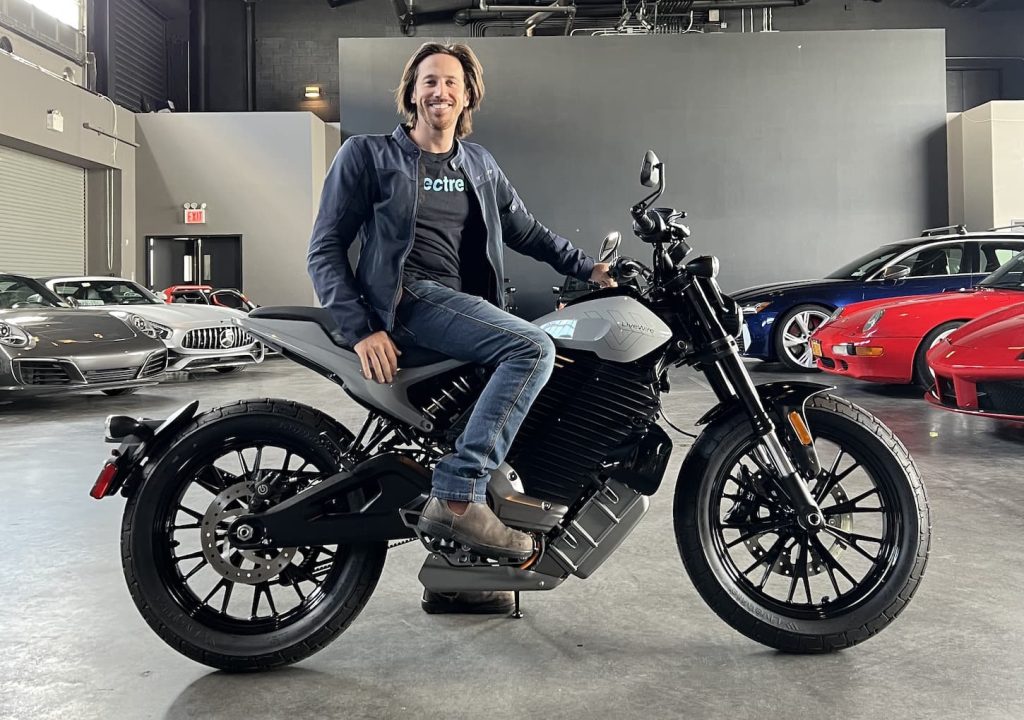
There isn’t level 3 DC fast charging like on the LiveWire One, but motorcycles inherently charge quickly on level 2 public chargers since the batteries aren’t as large as those in electric cars. LiveWire says that a 20-80% charge can top up the majority of the pack in just over an hour. That means a lunch stop or shopping errands is enough time to nearly fill the battery.
Two decades from now, when we’re all enjoying five-minute charge times, we might look back on this and laugh. But for now, that’s plenty for me. Most people, myself included, will likely charge overnight anyway. When you start each day with a “full tank,” and your riding is mostly urban, range anxiety simply doesn’t exist.
I like the way it looks
This one is subjective. But have you ever heard of a more subjective and polarizing vehicle than a motorcycle?
Personally, I like the design. In fact, I love the Comet Indigo colorway, which is one of the reasons I jumped to get a LiveWire S2 Del Mar Launch Edition with the special color option.
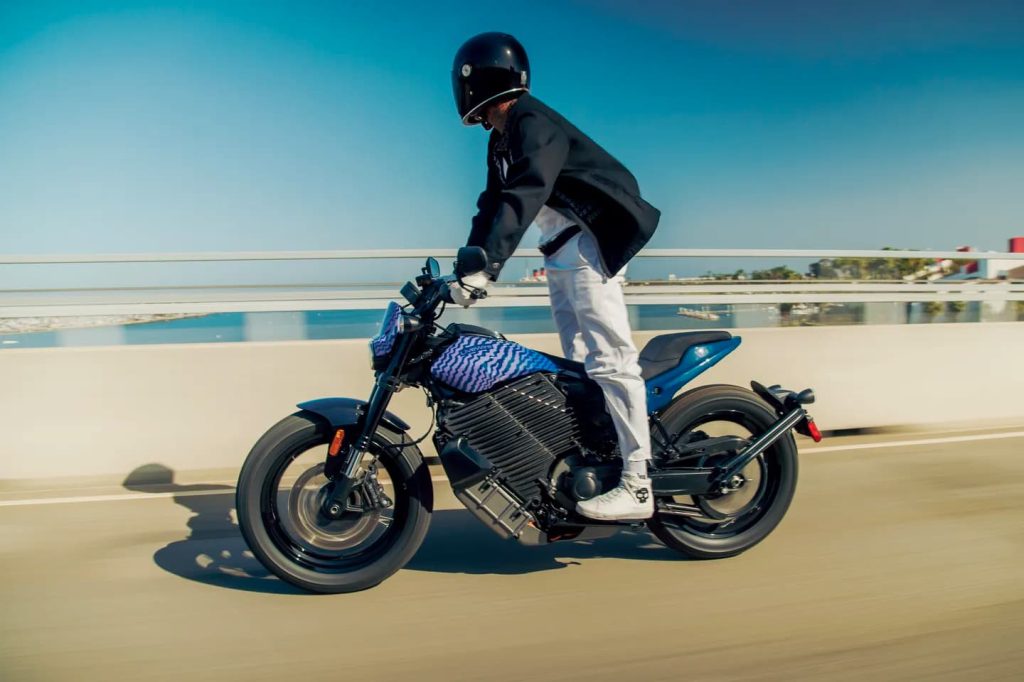
To me, the bike looks classy and modern. It has enough character that it doesn’t disappear into a non-offensive, please-as-many-people-as-possible design that some electric motorcycles try to aim for. But it’s also not overly wild. It’s tasteful, and I like it.
Though I also have more selfish reasons for liking the indigo Launch Edition bike. There are only 100 of these individually numbered LE bikes being made, ever. It’s an incredibly important model, both as LiveWire’s first in-house launch (the LiveWire One started out as a Harley-badged bike) and as the first to use the new Arrow platform. Sure, the value will drop the minute the tires first touch the asphalt, but perhaps one day, it will become a collector’s item, just 1 of 100. And while every bike is special, I kind of like knowing that mine is extra special. You can think that’s silly; I don’t care. I’m too busy riding and smiling inside my helmet.
LiveWire’s price is right-ish
As far as I’m concerned, electric motorcycles have two and only two downsides compared to combustion-engine motorcycles. They cost more, and they don’t go as far. As I already covered, the range is fine for my specific needs (and if I ever want to do motorcycle touring, I can just rent a fast-charging electric motorcycle). That leaves the price. At $15,499 for the production version, the LiveWire S2 Del Mar splits the gap in pricing.
Sure, it’s more expensive than a similarly performing gasoline-powered motorcycle. But the ship has long since sailed on me buying a gasser. So compared to other electrics, the price is quite fair. It comes in a bit higher than Zero’s entry-level bikes, but it’s also got higher performance. And it’s also considerably lower than LiveWire’s flagship One with its $23,000 price tag.
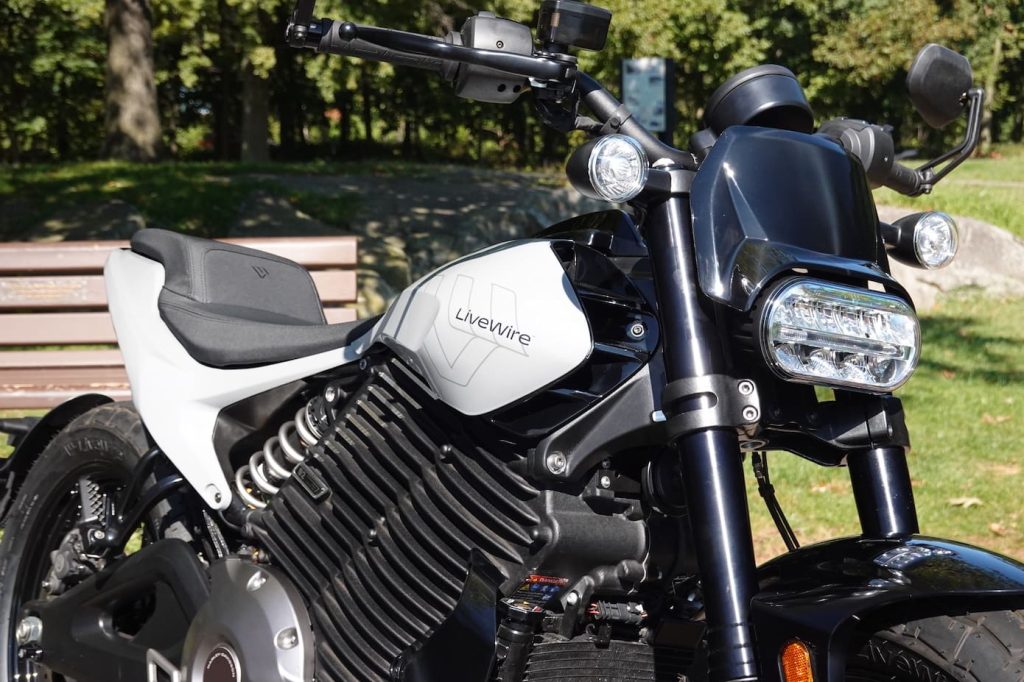
Of course, affordability is relative, and there was a time in my life when a $15k bike was far out of reach. I had an e-bike startup in college, and I remember we would buy a single spool of heavy-gauge red wire and paint half of it black to save money. But I’m proud to be at the point where I’ve worked hard enough to save up for a $15k motorcycle. I don’t drive a car, so, to me, this is a reasonable transportation purchase, even if, admittedly, I’ll be getting a lot of recreational use out of it too.
I want to support companies that are moving in the right direction
Most of my reasons for reserving a LiveWire S2 Del Mar are performance and price-based. But one of my last reasons is ideological. It’s not just that I like the way the bike looks and rides. I also like what it stands for.
Of all the legacy motorcycle companies out there, Harley-Davidson was the first to jump feet first into electric motorcycles. Nearly ten years ago, H-D was already developing its first electric model. It took almost a decade for companies like Honda, Yamaha, BMW, Triumph, Royal Enfield, and so many others to merely start to explore real electric motorcycles. None of those companies have models on the road yet and are only now beginning to show off concepts and prototypes (though BMW can at least be commended for its electric maxi-scooters). So I take my hat off to H-D for being so far ahead of the curve compared to all other major legacy motorcycle manufacturers.
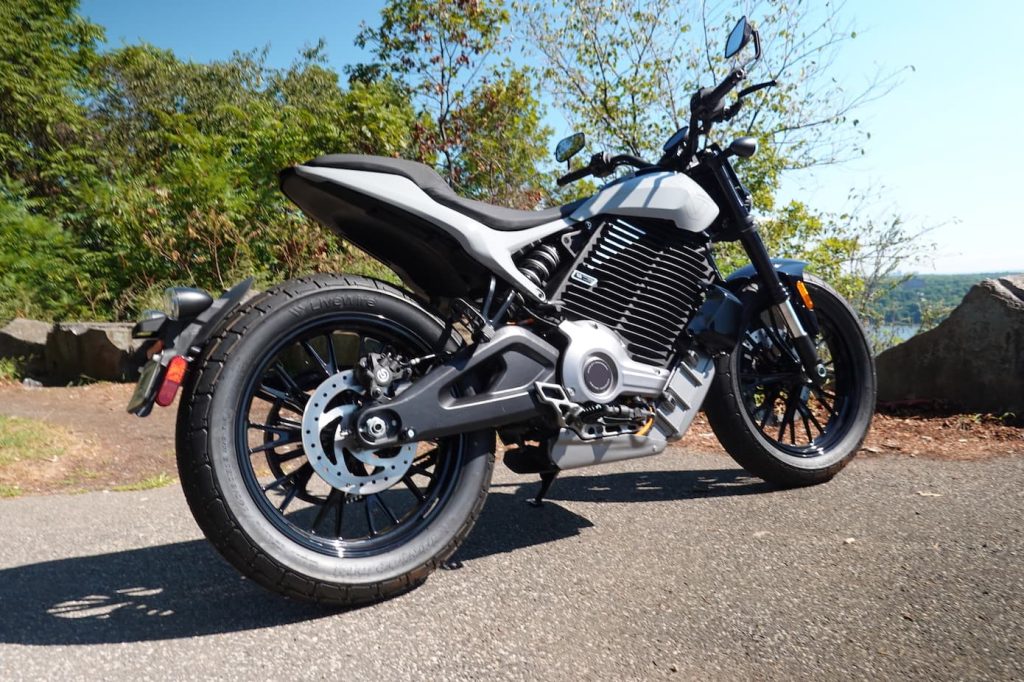
Though that leaves the elephant in the room of the many other electric motorcycle competitors. Why didn’t I go with them?
Well, I thought about it. Before putting money down on the LiveWire S2 Del Mar, the main alternatives I considered were the Zero FXE, the RYVID Anthem, and the CSC RX1E. I had a loaner 2019 Zero FXS for several months a few years ago and absolutely loved it. I was in Boston at the time, and it was an awesome bike for the city. But its smaller battery meant that the 90-mile city range turned out to be a good bit lower in practice unless I could stick to a solid 30-35 mph average speed and avoid the fun of putting the front wheel in the air when the light turned green. The new FXE that replaced it is an incredibly fun bike – I’ve tested that one, too – but it doesn’t feel like the same performance as the S2 Del Mar. It would save me around $2,500 compared to the production S2 Del Mar, but to me, the extra cash is worth it.
Next was the RYVID Anthem. I tested that bike, too, and was majorly impressed. The price is also killer, at just $7,800. This bike probably gave the LiveWire S2 Del Mar the biggest run for its money, at least for me. And if I hadn’t reached the point in my life where I could save up the extra dough for the LiveWire, I probably would have gone with the RYVID Anthem. But again, the sporty performance and increased range of the Del Mar won me over.
That leaves the CSC RX1E – an urban commuter motorcycle hiding in an adventure bike’s body. I love the RX1E. It’s not sexy, but damn, is it a good utility bike for everyday commuter purposes. It’s fast enough to take on the highway and has enough storage to do a week’s worth of grocery shopping. And in fact, I did choose this one, too, sort of. I’ve got one in the family, meaning I can ride it anytime I like. As probably the most comfortable electric motorcycle I’ve ever tested, I’m glad to have the CSC RX1E in my quiver (and I’ll be glad to share a full review on that soon).
More LiveWire info coming soon
As we approach LiveWire’s expected summer deliveries of the S2 Del Mar, we are hopefully getting that much closer to the full release of the final specs. We don’t yet know the motor power, top speed, or battery capacity. But having tested the bike myself, I already know it’s insanely powerful, faster than anyone needs, and has enough range for any urban or suburban rider.
While it’s not perfect, the bike offers nearly everything I was looking for and does so in a package I would enjoy being seen on.
I look forward to coming back to you, hopefully soon, with a first ride experience after taking delivery of my bike. Until then, feel free to check out my test ride video on the S2 Del Mar prototype below.
